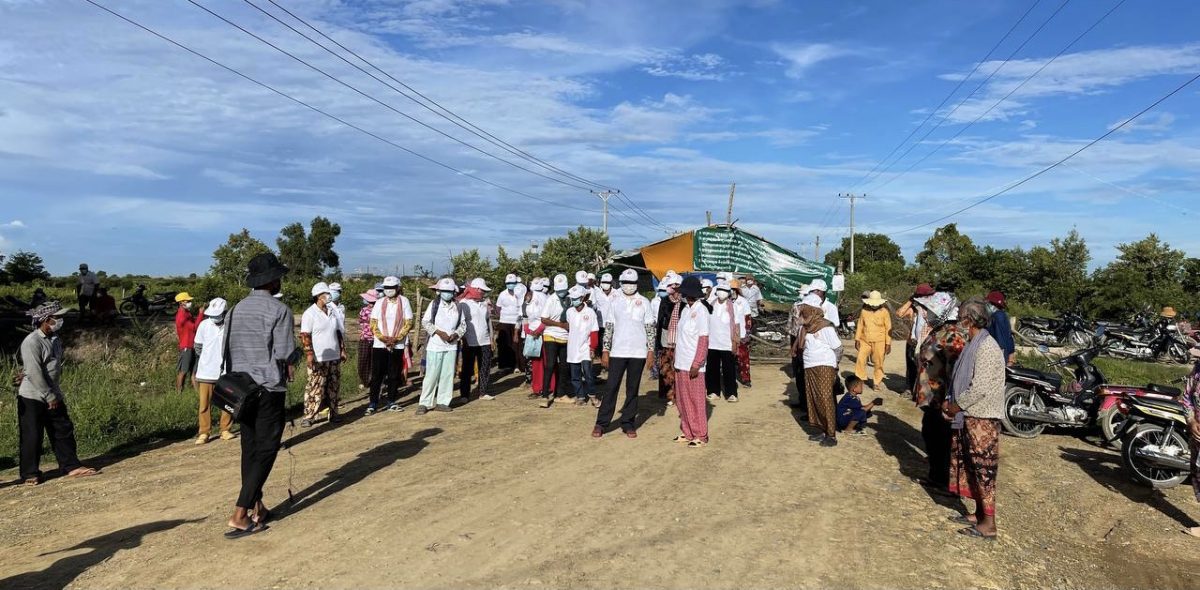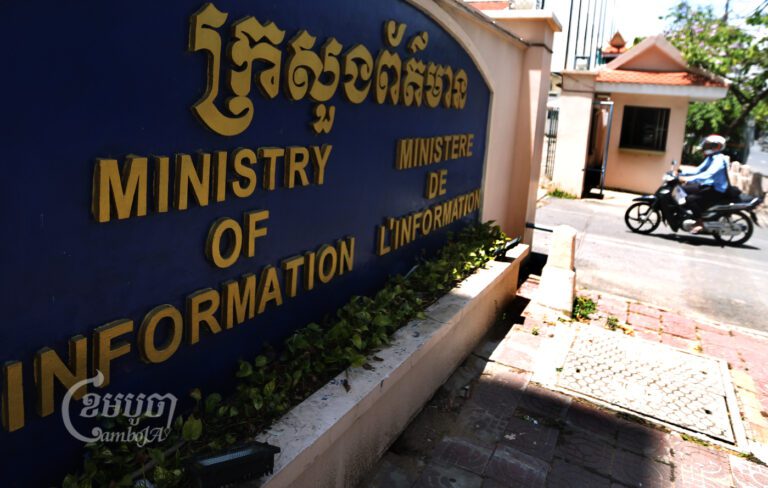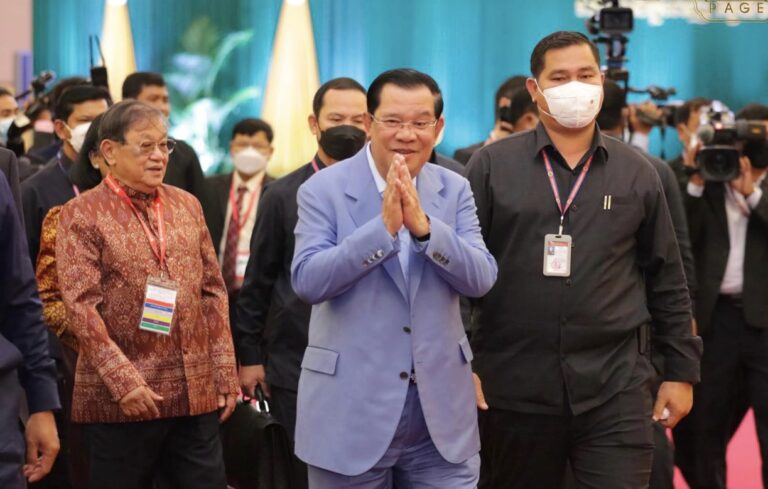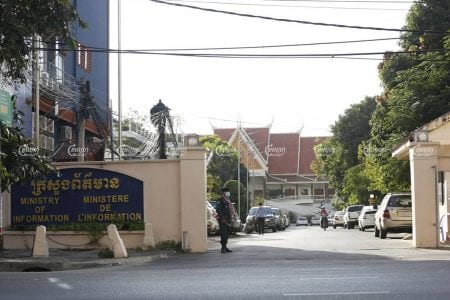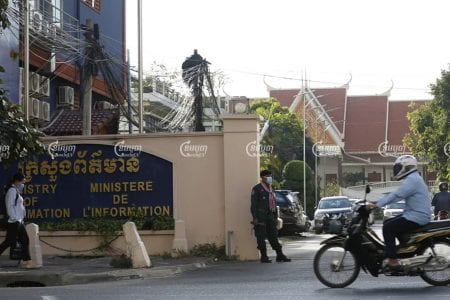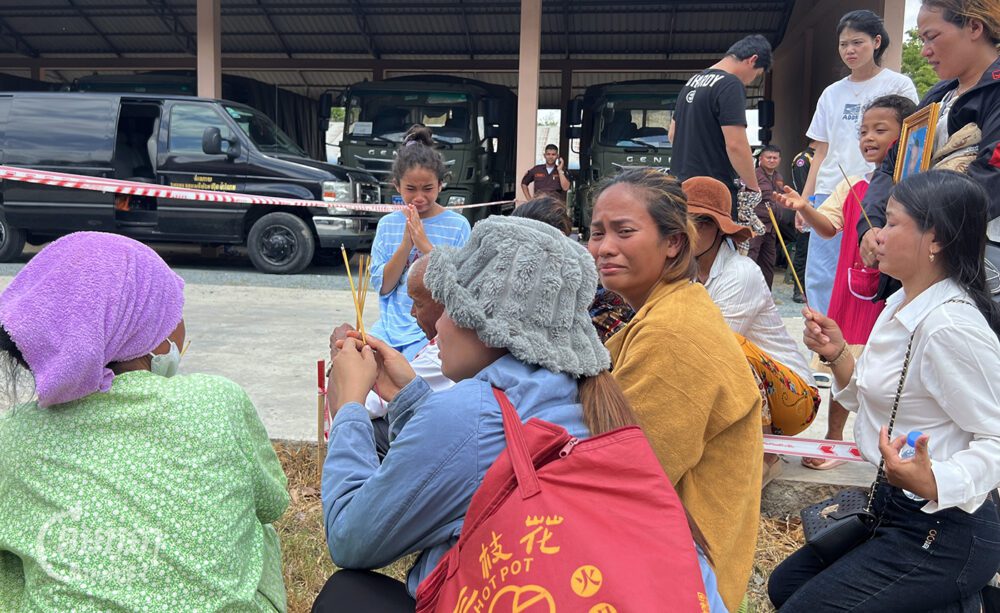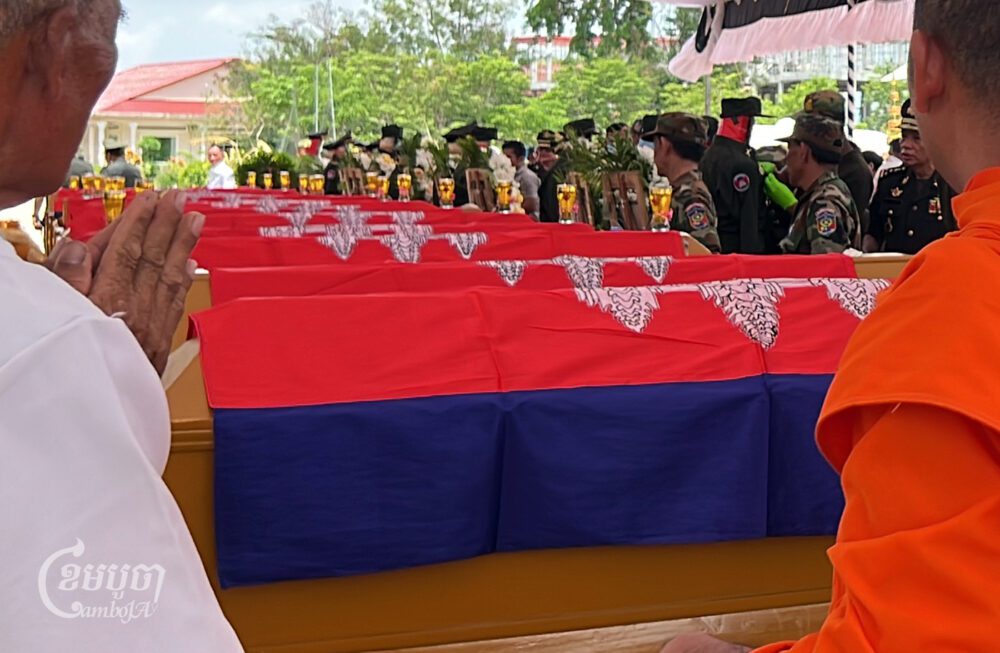As the rest of society eases from pandemic restrictions, many Cambodian journalists are facing a tightening press landscape.
Such were the findings of the latest quarterly report of the Cambodian Journalists Alliance Association (CamboJA), which found at least nine recorded instances of free expression violations by the judiciary and local officials in just the past few months. These findings are detailed in its monitoring report released Tuesday and covering the period from July-September, when CamboJA observed incidents affecting a total of 21 journalists.
“I think this is a picture of the intimidation of journalists, which is not new and still happening,” said Nop Vy, executive director of CamboJA, in the report. “We should better train and educate [journalists] on ethics and professionalism, rather than continuing to threaten them.”
The report has also noted that digital press freedom has been curtailed amid the pandemic, as evidenced by the sharp increase in the number of ‘fake news’ accusations, revoked media licenses, threats and arrests that took place this year related to COVID-19.
Aside from those stemming from pandemic conditions, many other violations against journalists took place in the context of land disputes.
These include the conviction late last month of felony incitement for online news publisher Yuon Chhiv, who was sentenced to one year in prison for broadcasting what officials say is disinformation related to a land issue in Botum Sakor National Park.
On July 22, three journalists from the online Cam-Hot News outlet who were attempting a live broadcast from a land protest in the area of Phnom Penh’s Boeng Tompun lake were taken to a police station and made to confess to committing a ‘mistake’ and sign an agreement to change their behavior.
Citizen journalist Chray Nim was detained and released on September 13 while covering another land dispute, while VOD reporter Pok Kheuy faced similar treatment on September 5 while covering the development of Phnom Penh’s new airport mega-project. On August 13, journalists An Vichet, a freelancer with CamboJA, and VOA Khmer reporter Lors Liblib were similarly stopped and harassed while reporting in the field.
Finally, in a more convoluted case, nine journalists in early September were arrested for what authorities described as the attempted extortion of someone transporting a wooden house.
From January to April of this year, the Ministry of Information revoked at least 7 media licenses including those for Angkor Today and the news sites Live-Daily, San Prum, Phengvannak, Stoengchralpost, Tecchor Youth News and K01 TV online.
Six of those outlets were accused of spreading false information and causing chaos in society related to COVID-19. The seventh was accused of spreading hate speech against monks and Buddhism.
Ith Sothoeuth, the media director of the Cambodian Center for Independent Media (CCIM), said he appreciated CamboJA’s investigations of the press landscape in light of the ongoing harassment of journalists and restrictions of freedom of expression.
“That data emphasizes freedom of expression and journalists are threatened in Cambodia. [It is difficult for] independent journalists to fulfil their duty to report reliable news for the public,” he said.
CamboJA’s latest report also details ways in which the Information Ministry has permitted authorities to crack down on unethical journalists. Though media professionals also condemn unethical journalism and promote best practices, the official practice of using the criminal justice system against journalists who fail to act ethically serves to limit press freedom overall.
Other recent steps from government officials may put new limitations on all journalists, even those working well within the law.
Among these is a public statement from the Information Ministry issued July 2 that told provincial authorities they have a right to prosecute journalists if they interfere with official work.
“Legally, journalists have no right to enter areas banned by authorities, disrupt the legal performance or endanger the operations of authorities, or to disseminate false information, incite against the work of authorities, affect public order and society,” the letter stated.
Pointing to the letter, Sotheouth said the rights of journalists are guaranteed as far as their work of collecting information is concerned.
He called on the Information Ministry to protect the free press by coordinating with relevant parties to promote media ethics, as opposed to empowering authorities to act against journalists. Sotheouth also beseeched authorities to use the Cambodian Press Law in disputes when journalists are involved, as opposed to criminal codes.
“The letter is really broad, and we are concerned at which level that authorities can take action. Police can misunderstand and restrict or harass reporters,” Sothoeuth said. “When there are a lot of threats and harassment, journalists will worry about their safety and limit their boundaries that cannot be reached to get comprehensive information.”
A photojournalist who asked not to be named for fear of losing his job, said official harassment of reporters is contrary to the public benefits provided by access to information.
“For 10 years, I faced a lot of struggles. The authorities are not happy when we go into the field, they act like we are not human. They remove and delete our photos and harass us frequently. Authorities should respect their role and journalists should also respect their ethics,” he said.
The photojournalist suggested other reporters should not go out on the job alone as it’s easier to find protection in groups. While some journalists act unethically, he added, they should not be arrested. Rather, aggrieved parties could send a warning letter to their institutions.
Horn Mariavana, a 20-year-old freelance reporter working with VOD, said she has been challenged a few times by officials when going out to collect information. She’s also heard “lots of threats and harassment” directed by officials toward other journalists.
“They don’t like us, and their behavior is dissatisfied. It’s typical that authorities don’t like journalists,” she said. “The arrests of those journalists is affecting freedom of expression for citizens. … Freedom of expression should be encouraged, not restricted.”
Information Ministry spokesman Meas Sophorn rejected CamboJA’s monitoring report as ill-intentioned toward authorities fulfilling their obligations to follow the law.
Sophorn further said the report had no comprehensive research on the legal instruments the ministry has laid out. He accused CamboJA of objecting to every decision issued by public institutions and said the organization does not accept official explanations.
“[CamboJA] always issues reports or statements to accuse competent authorities implementing the law of violating the rights and freedoms of journalists,” Sophorn said.
He added that journalists who report harassment from authorities have in the past refused to provide detailed information of the incidents to the Information Ministry or other government offices. In that, Sophorn implied that such incidents may be fabricated by some outside party.
“If they [experienced] violations of their rights and freedoms, then why did they not cooperate to provide information to the authorities? Are they real victims of rights violations, or is it a performance with someone holding the strings?”


